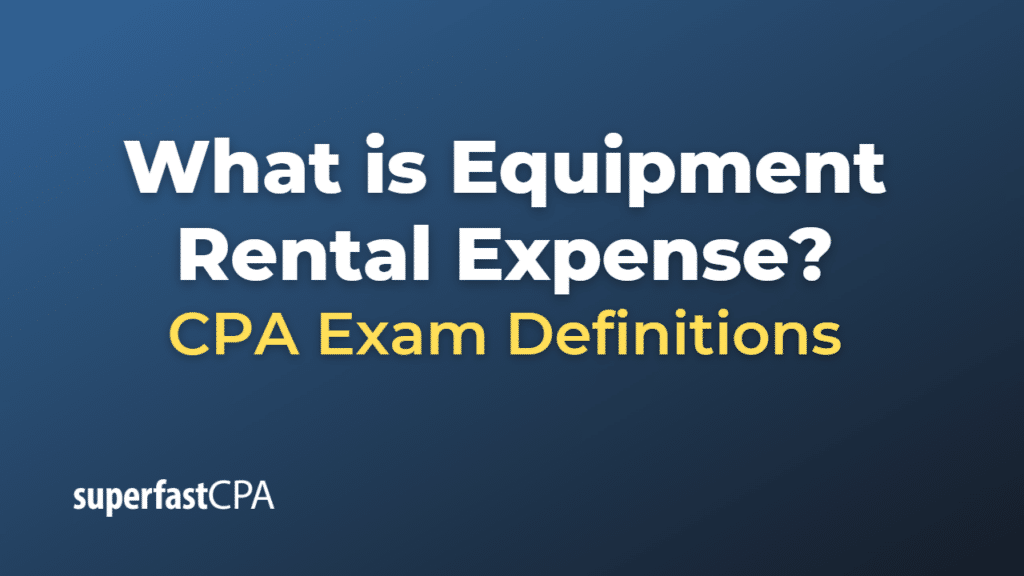Equipment Rental Expense
Equipment Rental Expense refers to the cost that a business incurs to rent equipment rather than purchasing it. This might include items like machinery, office equipment, vehicles, or other tools that the business needs for its operations.
Renting equipment can be a cost-effective strategy for many businesses, especially for short-term projects or when the equipment is too expensive to buy outright, quickly depreciates, or becomes obsolete rapidly (such as high-tech equipment). The rental expense is usually accounted for as an operating expense on the company’s income statement.
This expense may be paid on different terms based on the contract, such as monthly, quarterly, annually, or for the duration of a specific project. The agreement should specify the rental period, the amount and timing of rental payments, and the responsibilities of each party with respect to the equipment.
Keep in mind that if the rental agreement is a lease agreement that transfers substantially all the benefits and risks of ownership to the lessee, then under many accounting standards it may need to be classified as a finance lease (or capital lease) rather than an operating lease. This could require the lessee to recognize the leased asset (and a corresponding liability) on its balance sheet.
Example of Equipment Rental Expense
Let’s imagine a construction company named “ConstructX” that has undertaken a new building project. For this project, it needs a specialized crane that costs $2 million to purchase outright. However, this crane will only be needed for this specific project, which is expected to last 5 months.
Instead of buying the crane, ConstructX decides to rent it. The rental company charges $10,000 per month for the crane. Over the course of the 5-month project, the total rental expense would be $50,000 (5 months x $10,000 per month).
This $50,000 would be recorded as an Equipment Rental Expense on ConstructX’s income statement for the period. By renting the equipment, the company has been able to make significant cost savings compared to if they had purchased the crane outright.
In their accounting books, they will debit the Equipment Rental Expense account and credit the Cash (or Accounts Payable, if the payment will be made later) account each month for $10,000. This expense will reduce the company’s net income for the accounting period.
This is a simplified example and actual scenarios may include other factors such as security deposits, maintenance and insurance of the rented equipment, potential late fees, and others based on the rental agreement.













